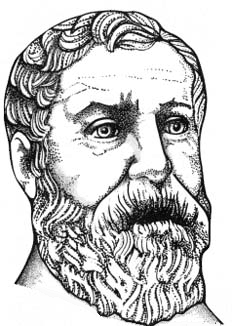Difference between revisions of "Heron of Alexandria (Q31707)"
From CanonBase
(Created claim: context (P47): Hero (or Heron) of Alexandria was among the first true technologists of antiquity. He was a mathematician, mechanic and taught technical subjects in the prestigious Museum of Alexandria, probably in the mid-first century B.C. His biographical events are still the object of discussion.His work places him among the most influential exponents of the Hellenistic scientific tradition. Hero, not only focused on studying the practical aspect of the inve...) | (Removed claim: Type of information (P11): stage mechanics and sets (Q21)) | ||
| (7 intermediate revisions by 2 users not shown) | |||
| Property / Type of information | |||
| - | |||
| Property / Type of information: stage mechanics and sets / rank | |||
| - | |||
| Property / Field | |||
| + | |||
| Property / Field: stage mechanics and sets / rank | |||
| + | Normal rank | ||
| Property / Source URL | |||
| + | |||
| Property / Source URL: https://www.roger-pearse.com/weblog/2016/01/29/hero-of-alexandria-on-the-making-of-automata/ / rank | |||
| + | Normal rank | ||
| Property / Source URL | |||
| + | |||
| Property / Source URL: https://aqua.ciuhct.org/hydraulic-treatises/di-herone-alessandrino-de-gli-automati / rank | |||
| + | Normal rank | ||
| Property / is used in theme | |||
| + | |||
| Property / is used in theme: Early history of moving lights (Theme) / rank | |||
| + | Normal rank | ||
Latest revision as of 15:17, 19 February 2025
Greek mathematician and engineer
- Hero of Alexandria
| Language | Label | Description | Also known as |
|---|---|---|---|
| English | Heron of Alexandria | Greek mathematician and engineer |
|
Statements
1. century
0 references
Hero (or Heron) of Alexandria was among the first true technologists of antiquity. He was a mathematician, mechanic and taught technical subjects in the prestigious Museum of Alexandria, probably in the mid-first century B.C. His biographical events are still the object of discussion.His work places him among the most influential exponents of the Hellenistic scientific tradition. Hero, not only focused on studying the practical aspect of the inventions, but he also deepened the theoretical part. He completed numerous significant theoretical contributions, elaborated the design of his machines, and he deeply studied the works of Archimedes and Euclid. Regarding the latter, he wrote the Commentaries to Euclid's Elements. (English)
0 references
0 references
